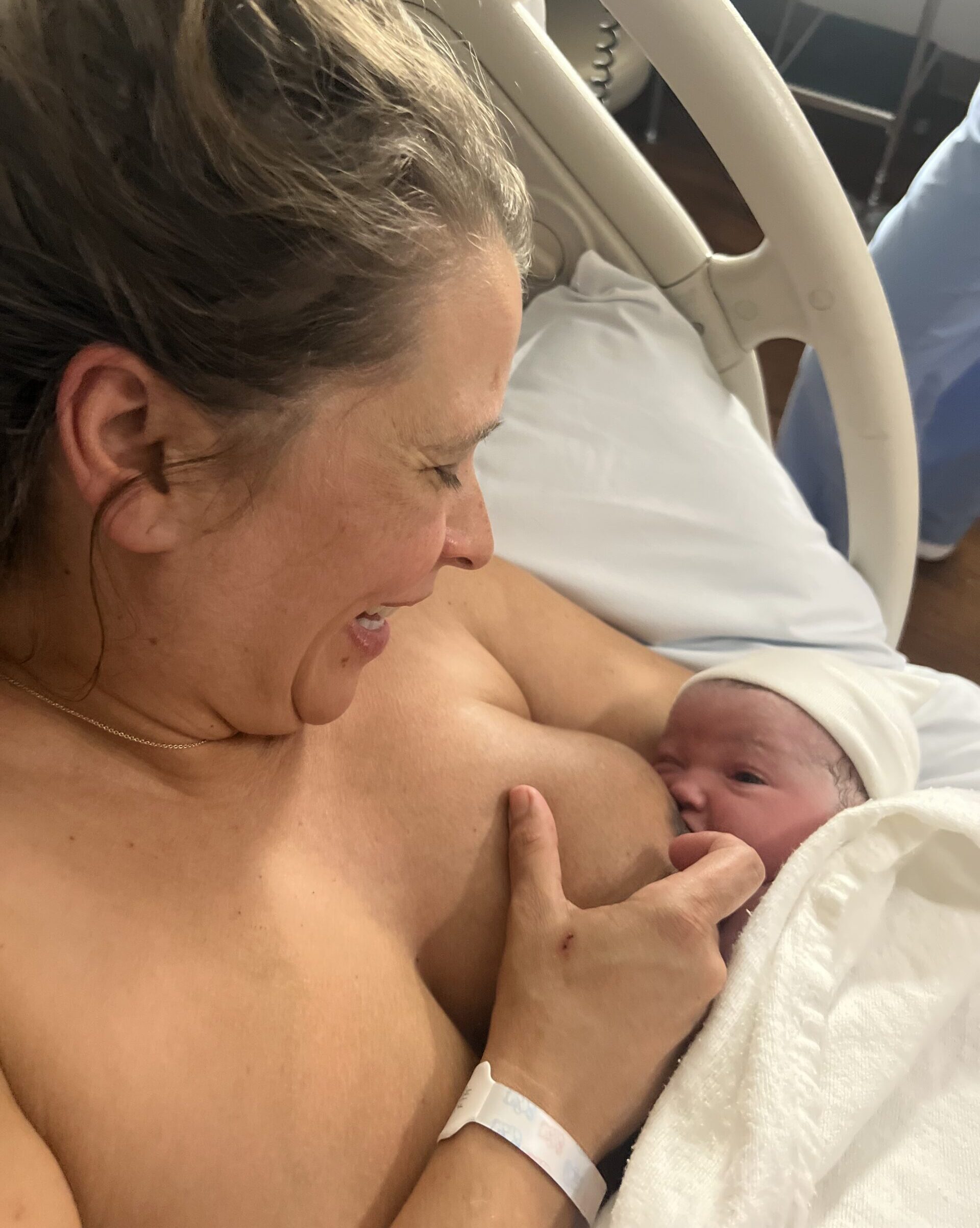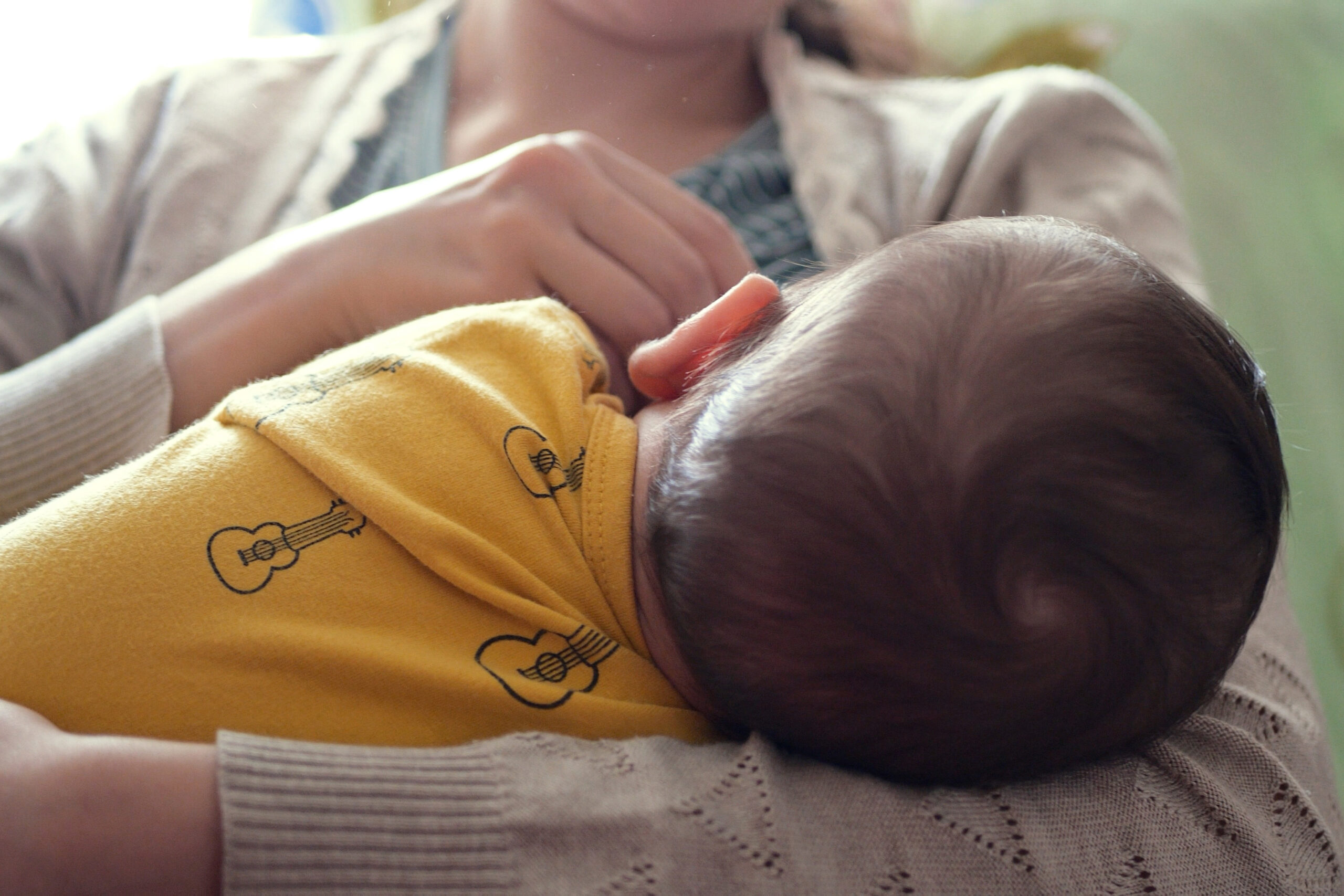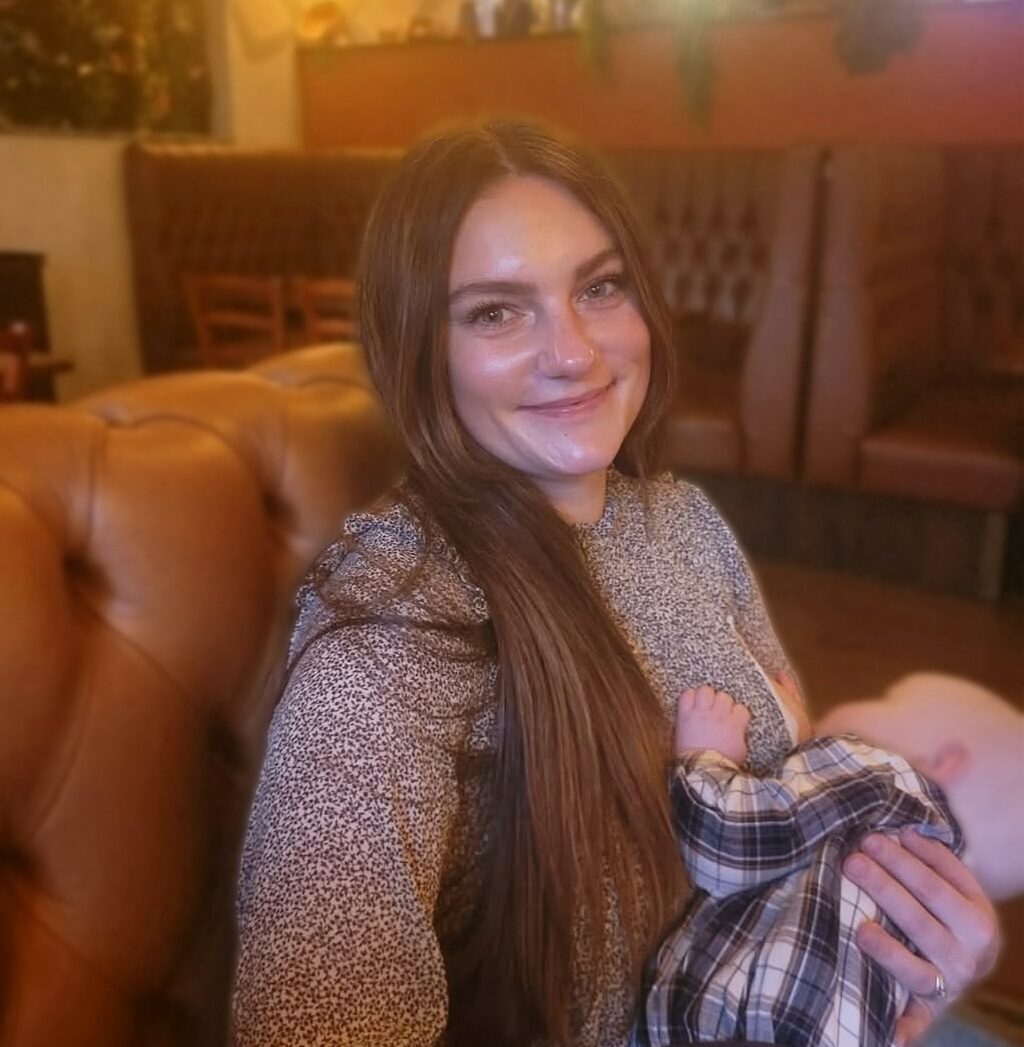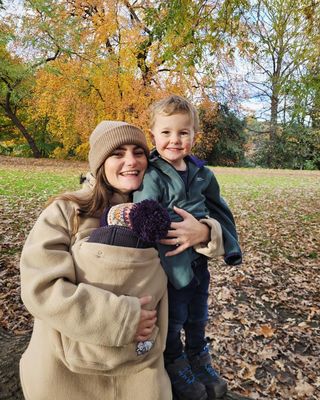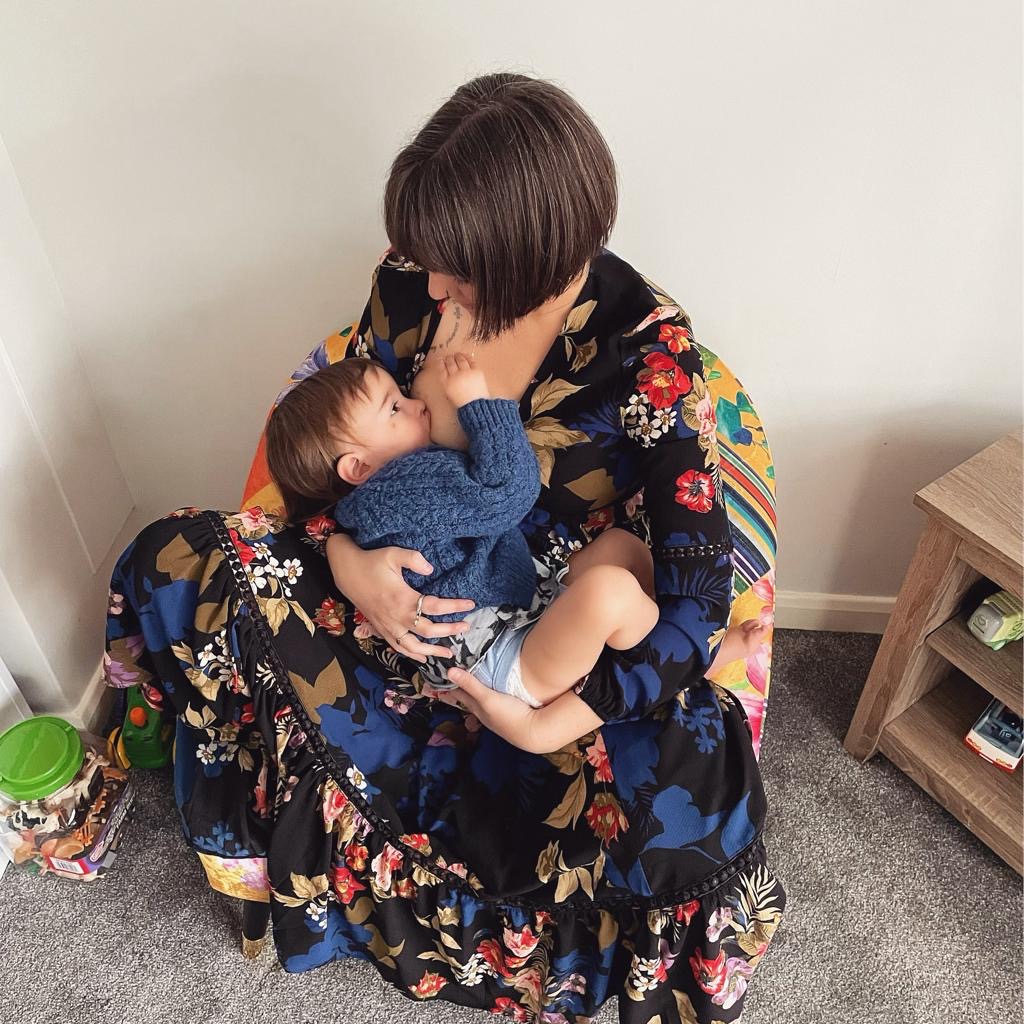Birth is supposed to be a beautiful experience, but for many mothers, it can be traumatic, with 15.7% of mothers experiencing trauma-related symptoms following birth. I know this firsthand.
During the 36 hours I was in labour, I consumed copious amounts of gas and air, one lot of Dihydrocodeine, two shots of Pethidine, and an epidural. I ended up in theatre, with an episiotomy, allowing for forceps to assist the birth, and the crowning misery (excuse the pun) was that my poor baby had shoulder dystocia. Albeit the abundance of opioids in my system allows for a hazy recall, the parts I do remember are drenched in trauma and grief.
In the days that followed, I struggled with guilt and a deep sense of loss, feelings I hadn’t expected to accompany the birth of my child. I felt powerless.
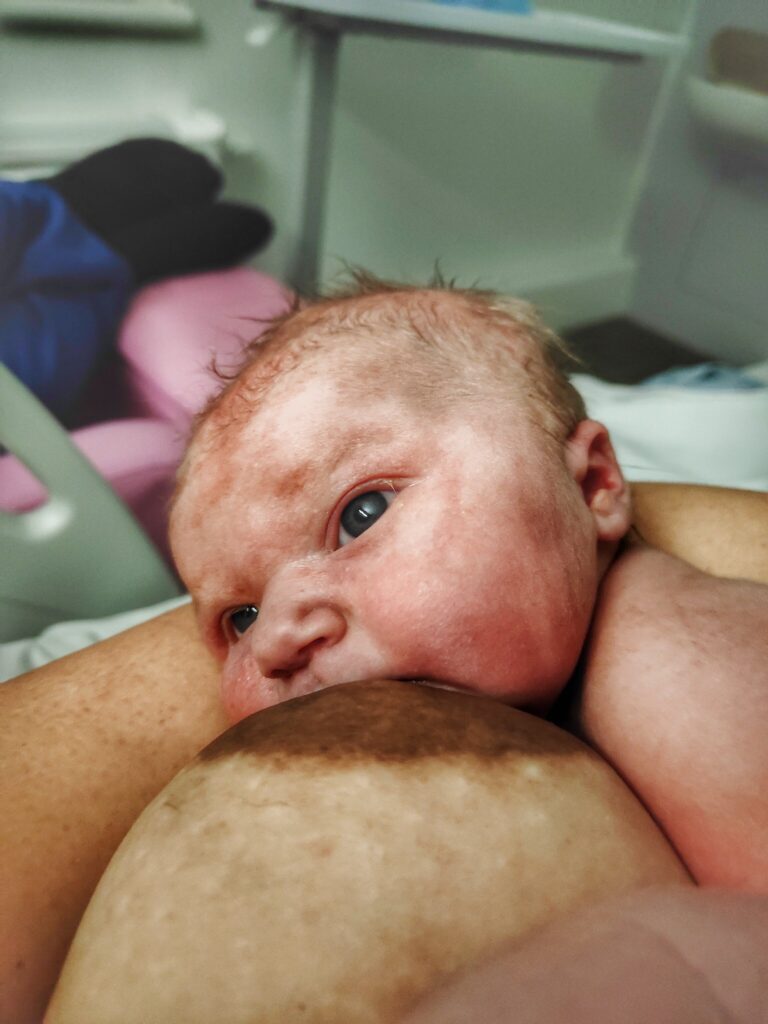
Breastfeeding Helped Me Heal
I began breastfeeding less than an hour after birth. At first, it was challenging, painful, exhausting, and overwhelming. But as the days turned into weeks, I realised that breastfeeding was doing something more than just nourishing my baby; it was helping me heal. Recently, I came across a study that put my experience into words: breastfeeding can be a powerful tool for emotional recovery after birth trauma.
I realised that breastfeeding was doing something more than just nourishing my baby; it was helping me heal.
Breastfeeding Can Help You Recover From Birth
A study published in Healthcare (MDPI) examined how breastfeeding influences the mental health of mothers who have experienced traumatic births. The research, which analysed responses from 159 mothers who self-identified as having a traumatic birth, found that breastfeeding played a key role in their recovery.
Here’s how the study was conducted:
- Participants: 159 mothers who gave birth between 1985 and 2020 and reported their birth as traumatic.
- Method: Online surveys with open-ended questions about their birth experiences, infant feeding, and mental health.
- Analysis: Reflexive Thematic Analysis (RTA) was used to identify recurring themes in the responses.
Key findings included:
- Breastfeeding as a Coping Mechanism – Many mothers used breastfeeding as a way to reclaim a sense of control and agency after feeling powerless during birth.
- Enhanced Mother-Infant Bonding – Breastfeeding strengthened the emotional connection between mother and baby, which in turn improved mental well-being.
- Improved Mental Health Outcomes – Participants reported reduced symptoms of PTSD and postnatal depression through breastfeeding.
- Need for More Support – The study emphasised that proper breastfeeding education and emotional support could enhance the mental health benefits for mothers recovering from traumatic births.
Reading this study felt like the validation I needed that my experience was authentic. When my birth did not go as planned, I felt like my body had failed me. But when I breastfed my baby, something shifted.
At first, it was simply a way to feed my child, but over time, it became an emotional anchor. The rhythmic act of nursing, the skin-to-skin contact, and the knowledge that my body was providing exactly what my baby needed gave me back a sense of confidence and strength. I was no longer broken, I was nurturing.
The Mental Health Benefits of Breastfeeding
My experience aligns with the study’s findings that breastfeeding can create a positive cycle: as mothers experience mental health benefits from breastfeeding, they are more likely to continue, reinforcing emotional healing.
This study highlights the many emotional and psychological benefits of breastfeeding, particularly for mothers recovering from traumatic births. While the findings are overwhelmingly positive, continued research and support are essential to ensure that all mothers can access the guidance and encouragement they need to have a fulfilling breastfeeding journey.
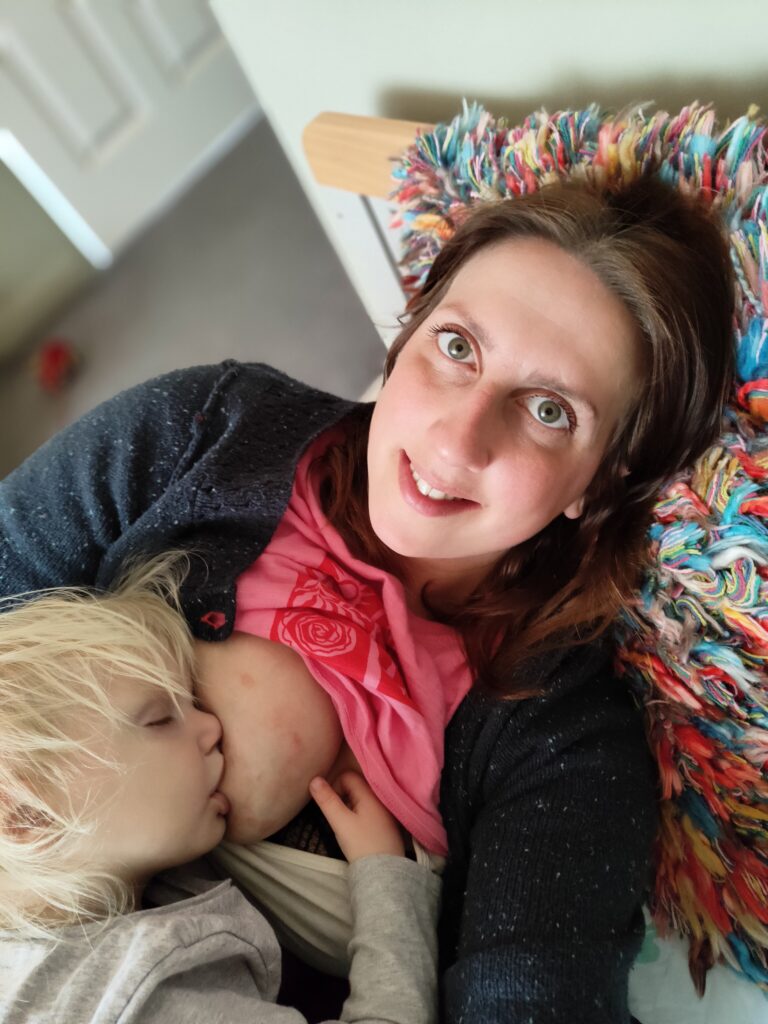
Breastfeeding Gave Me Confidence After A Traumatic Birth
For me, breastfeeding is more than just feeding my child—it has been a way to reconnect with my body after trauma. It has reminded me that my body is capable, strong, and nurturing, even after a difficult birth. Today, after 815 days of breastfeeding, I look back and see how far I’ve come. The feelings of failure that once consumed me have faded, replaced by the quiet confidence that I gave, and continue to give my daughter everything I can.
For me, breastfeeding is more than just feeding my child—it has been a way to reconnect with my body after trauma.
This study reinforced what I already knew in my heart: breastfeeding, for many mothers, is not just about nutrition; it’s about survival, resilience, and healing.
Sources
Wheeler, A.; Sweeting, F.; Mayers, A.; Brown, A.; Farrington, S. The Positive Cycle of Breastfeeding—Mental Health Outcomes of Breastfeeding Mothers Following Birth Trauma. Healthcare 2025, 13, 672. https://doi.org/10.3390/healthcare13060672







